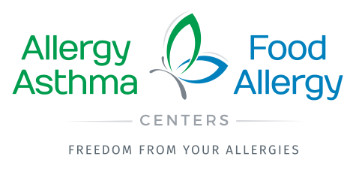You can almost set your clock to it – winter ticks over into spring, plants start to bloom, and people’s noses start to act up – runny nose, stuffy nose, or even post-nasal drainage. The condition commonly called “seasonal allergies” or “hay fever,” which goes by the medical name of “Allergic Rhinitis,” affects up to 60 million people in the United States and can make life a snotty mess. Read below to learn more about this condition, including some common misconceptions.
Fact or Fiction: Seasonal allergies are called that because they only occur in the spring and the fall
FICTION. “Seasonal allergies” can be a bit of a misnomer. While it is certainly common to have flares of symptoms in the spring and fall, many people suffer from perennial (year-round) symptoms. This can occur because of allergies to indoor allergens like dogs, cats, cockroaches, and dust mites. Allergy testing can evaluate for the commonly known allergens like trees, grasses, weeds, and molds and tests for indoor allergens. Unfortunately, many people can’t count on the time of the year to provide relief.
Fact or Fiction: Eating local honey helps prevent or treat nasal allergy symptoms.
FICTION. This commonly suggested remedy offers to provide allergy relief with a tasty treat. Sadly, it is not effective. The thought process is that local honey contains pollen, and eating the honey will allow for exposure to the pollen – similar to an allergy shot. While there can be small amounts of pollen in local (unprocessed) honey, this tends to be from flowering plants, which are less likely to cause allergy symptoms. Pollen allergy is most commonly caused by wind spread pollens like those from grasses, trees, and weeds.
Fact or Fiction: Allergies aren’t the only cause of this type of nasal symptom.
FACT. Though ⅓ of patients with persistent nasal symptoms have allergic triggers, another ⅓ have non-allergic triggers. These triggers can include perfumes/fragrances, smoke, or even temperature/humidity changes; the latter two can mimic the seasonal pattern seen in seasonal allergies. Thus, the final ⅓ of patients with nasal symptoms have a combination of allergic and non-allergic triggers, which we call “mixed rhinitis.”
Fact or Fiction: Allergic (or non-allergic) nasal symptoms are just a normal part of life that has to be dealt with – there’s nothing to be done about them.
FICTION. Thorough evaluation of symptoms, combined with allergy testing, helps guide specific treatment for your nose symptoms. At Allergy, Asthma & Food Allergy Centers, we are experts in diagnosing and treating allergic, non-allergic, and mixed nasal symptoms. A combination of environmental control measures (to reduce exposure to allergens), treatment with oral or nasal medications, and possibly the addition of allergen immunotherapy (allergy shots) can provide lasting symptom relief.
Allergists are uniquely qualified to help you get the relief you need when it comes to this troublesome condition. You can learn more about this condition in our blog, or by making an appointment to be seen by one of our providers.
